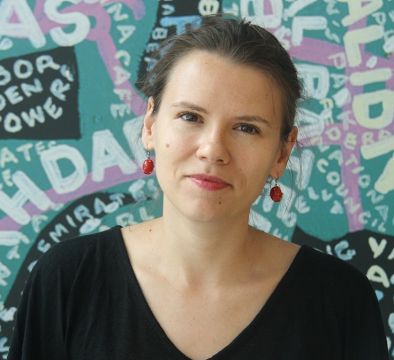Masha Kirasirova is a historian of exchanges between the Soviet Eurasia and the Middle East. Her work approaches modern Middle Eastern history from a “Second World” perspective. It brings together several hitherto separate scholarly domains: Soviet nationalities policy with regard to the USSR’s Muslim populations; social and cultural history of Stalinism in shaping the experience of Arab communists in the Soviet Union in the 1920s and 1930s; cultural exchange with Arab leftist intellectuals during the Cold War; and the impacts of these exchanges on artistic, bureaucratic, and political practices inside the USSR and on those exported to Syria, Lebanon, Israel/Palestine, and Egypt.
Kirasirova’s research has been supported by the SSRC InterAsia, Eurasia, and IDRF programs, Mellon/ACLS, and IREX as well as a number of university-wide, competitive research fellowships at NYU. Her dissertation was awarded the Robert C. Tucker/Stephen F. Cohen Dissertation Prize (2015). Before coming to NYUAD she spent a semester as a visiting research fellow at the Zentrum Moderner Orient in Berlin.

